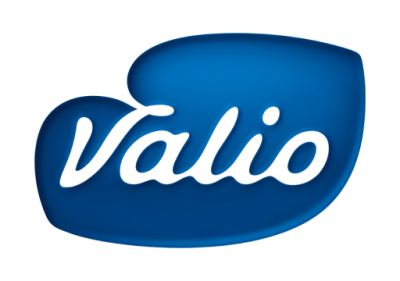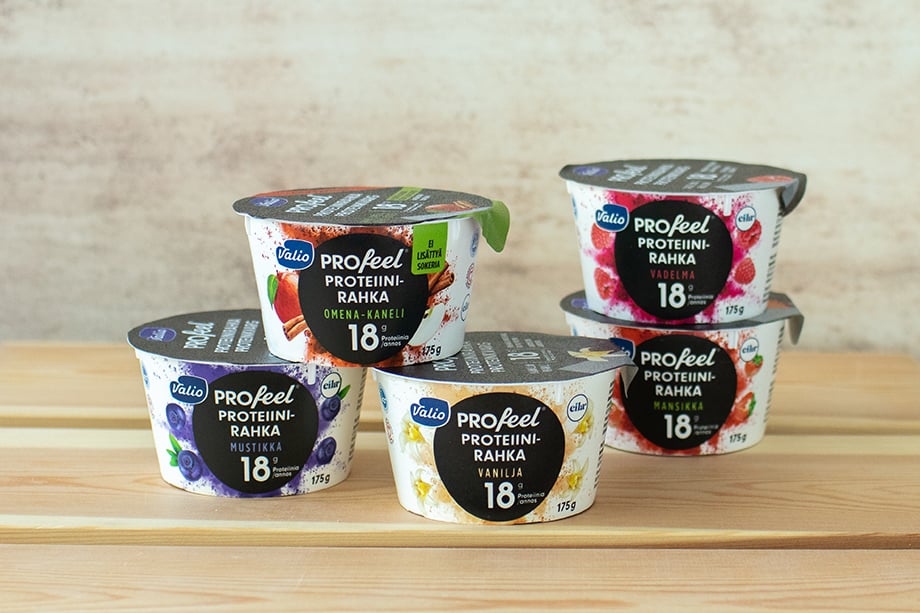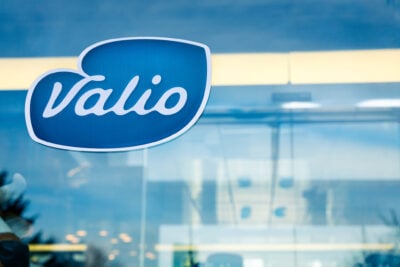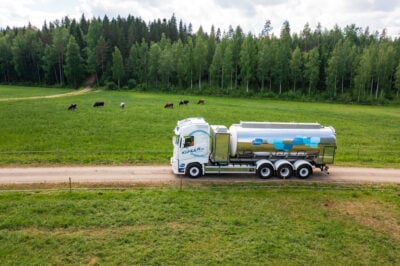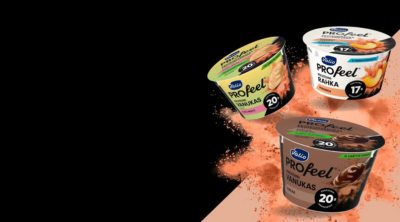In the development of its packaging, Valio is investing in renewable packaging materials, reducing fossil plastics and improving recyclability. According to a recent packaging study* commissioned by Valio, people are increasingly interested in the responsible packaging of food products. Responsible packaging is assessed primarily by its recyclability. Many are also paying attention to suitability of the packaging size for their own use, to avoid food waste.
Food product packaging must be eco-friendly, recyclable and easy to use. The various packaging materials and their sustainability are also of concern − why does paperboard packaging also have plastic and why does a milk carton have a cap? And the recycling of materials can be confusing, especially if one package has a mix of materials that can be sorted into different recyclable fractions, like plastic, cardboard and aluminium.
According to Juhana Pilkama, Head of Packaging Development at Valio, eventually all Valio packaging will be produced from renewable or recycled materials, and they will be fully recyclable. Currently, about 73 percent of Valio’s product packaging sold in Finland is made from renewable or recycled materials, and 86 percent is fully compatible with the circular economy.
Valio PROfeel® protein quark snacks to be packaged in paperboard cups
“We are replacing fossil plastics with renewable and recycled materials, like recycled plastics and paperboard,” says Juhana Pilkama.
Valio PROfeel® protein quark snacks are an example of changes in packaging: the plastic lids and plastic spoons are being removed from the packaging. Now the PROfeel® protein quark snacks are gradually switching to cups that are suitable for cardboard recycling. The first ones to be packaged in the new paperboard packaging will be this autumn’s new flavour, the sugar-free apple-cinnamon, and the sugar-sweetened strawberry, raspberry, blueberry and vanilla flavours. From now on, these packages can be rinsed and put into cardboard recycling.
“By switching to paperboard cups in these products, we will reduce plastic use by a total of 46,000 kilos per year. This is the equivalent of some 2.2 million grocery store plastic bags,” Juhana Pilkama notes.
The packaging change will be phased in so that Valio can utilise the packaging materials it had already acquired and thus avoid packaging waste. The next protein quark snacks are expected to switch to paperboard cups in early 2023, and the goal is to get also other Valio PROfeel® products into paperboard cups as soon as possible.
The amount of plastic will be reduced, but it can’t be totally replaced
All paperboard packaging has a thin plastic film to ensure that a liquid product remains inside the packaging and stays fresh.
“Packaging must be designed to protect the product from spoiling. Plastic can be made also from renewable raw materials or from recycled plastic raw materials. For example, all Valio’s gable-topped cartons, including the cap, are made from 100 percent renewable materials. The cap and the thin plastic film are made from bioethanol, a by-product of the sugarcane industry. The cap preserves the shelf-life of the product and thus reduces food waste. The cap can be recycled with plastic recycling.
“To facilitate recycling, we have also included recycling instructions on our packaging. Going forward, we will be communicating more about the sustainability aspects of our packaging materials,” says Juhana Pilkama.
*Study on Significance of packaging and responsibility, Foodwest, 04/2022
